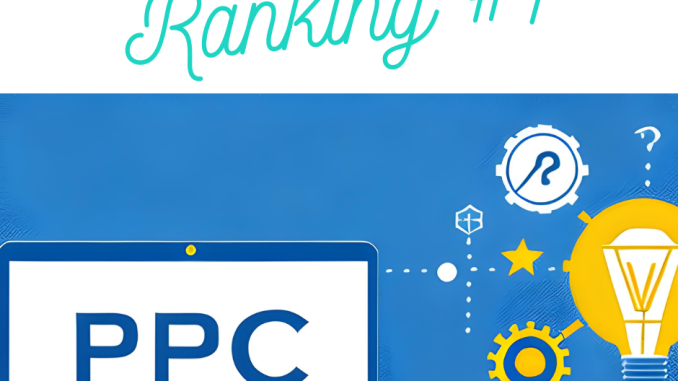
Pay-Per-Click (PPC) advertising has become one of the most popular forms of online advertising, thanks to its ability to drive traffic, generate leads, and increase sales. However, like any advertising strategy, there are both pros and cons to consider before diving into a PPC campaign. In this blog article, we will discuss some of the key advantages and disadvantages of PPC advertising.
Pros of PPC advertising:
- Cost-effective: PPC advertising allows you to pay only when someone clicks on your ad. This means you don’t have to pay for impressions or views that don’t result in clicks. As a result, PPC can be a cost-effective way to advertise, especially for small businesses with limited budgets.
- Targeted: With PPC, you can target your ads to specific audiences based on factors such as location, interests, and demographics. This means you can show your ads to people who are more likely to be interested in your product or service, leading to higher conversion rates.
- Immediate results: Unlike other forms of advertising, PPC campaigns can start generating results almost immediately. You can create an ad and start seeing traffic and leads within a few hours.
- Measurable: PPC advertising allows you to track and measure your results. You can see how many people clicked on your ads, how many conversions you generated, and how much money you spent. This data can help you optimize your campaigns and make data-driven decisions.
Cons of PPC advertising:
- Costly: While PPC can be cost-effective, it can also be expensive, especially if you’re targeting competitive keywords. If you’re not careful, you can quickly spend a lot of money without seeing a significant return on investment.
- Requires expertise: To run a successful PPC campaign, you need to have a good understanding of keyword research, ad copywriting, and campaign optimization. If you don’t have the necessary expertise, you may end up wasting money on ineffective campaigns.
- Can be time-consuming: PPC campaigns require ongoing monitoring and optimization to ensure they’re performing well. This can be time-consuming, especially if you’re running multiple campaigns across different platforms.
- Can be impacted by external factors: PPC campaigns can be impacted by external factors such as changes in search algorithms or increased competition. This means you need to stay up-to-date with industry trends and be prepared to adjust your campaigns accordingly.
Summarizing, PPC advertising can be an effective way to drive traffic, generate leads, and increase sales. However, it’s important to weigh the pros and cons carefully before investing in a PPC campaign. If you have the necessary expertise and budget, and you’re willing to put in the time and effort required, PPC advertising can be a valuable addition to your marketing strategy.
How does Pay-Per-Click advertising become an integral part of an overall digital marketing strategy? What is PPC’s place in organic search results?
Pay-Per-Click (PPC) advertising can be an integral part of an overall digital marketing strategy, as it complements other marketing tactics and helps achieve specific goals. PPC can be used to drive targeted traffic to a website, increase brand awareness, generate leads, and boost sales. Here are some ways in which PPC can become an integral part of a digital marketing strategy:
- PPC and SEO: PPC and Search Engine Optimization (SEO) can work together to improve a website’s visibility in search results. While SEO takes time to show results, PPC can provide immediate traffic to a website. PPC campaigns can be used to test and identify high-converting keywords, which can then be used in SEO efforts to improve organic search rankings.
- Retargeting: PPC can be used for retargeting campaigns to reach people who have already visited a website but haven’t converted. Retargeting allows advertisers to show ads to people who have shown an interest in their product or service, increasing the chances of conversion.
- Social Media Advertising: PPC can also be used in social media advertising to reach specific target audiences. Social media platforms like Facebook and LinkedIn offer highly targeted advertising options, allowing advertisers to reach people based on their interests, job titles, and other demographics.
- Brand Awareness: PPC can be used to increase brand awareness by showing ads to people who are searching for related keywords. Even if someone doesn’t click on the ad, they may still remember the brand and consider it in the future.
In terms of its place in organic search results, PPC ads are shown above organic search results on search engine results pages (SERPs). PPC ads are identified with the word “Ad” next to them, whereas organic search results are not paid for and are shown based on relevance to the search query. While PPC ads may receive more clicks initially, organic search results can provide long-term benefits as they can generate traffic and leads without ongoing ad spend.
In conclusion, PPC can be a valuable addition to a digital marketing strategy and can be used to complement other marketing tactics. By using PPC campaigns to drive traffic and test keywords, businesses can improve their SEO efforts and generate long-term benefits. PPC can also be used for retargeting, social media advertising, and brand awareness campaigns, making it a versatile tool for achieving specific marketing goals.


Leave a Reply
You must be logged in to post a comment.